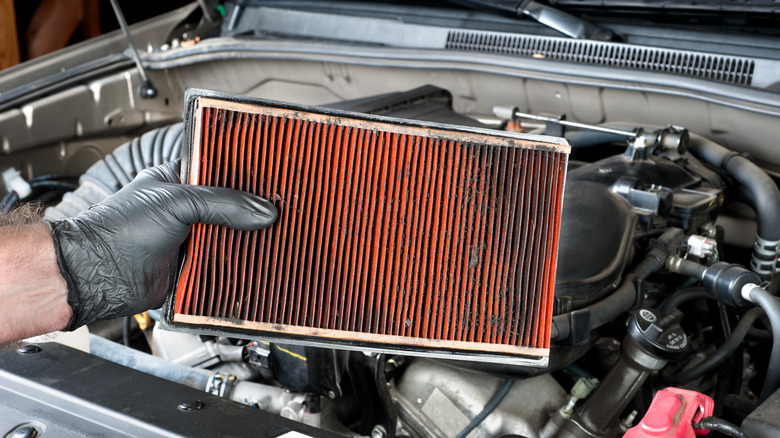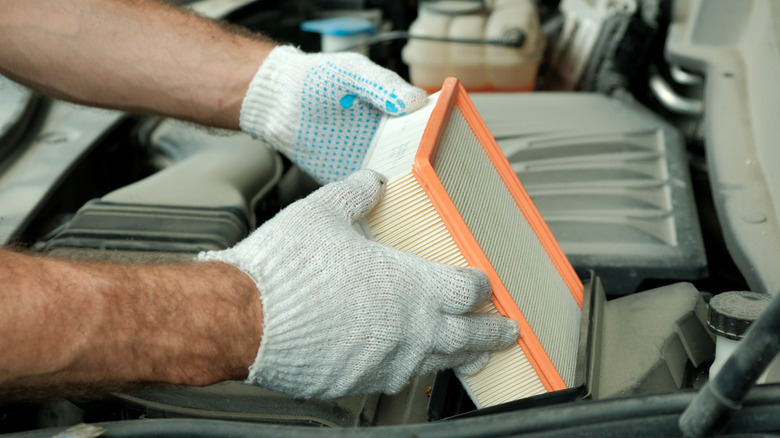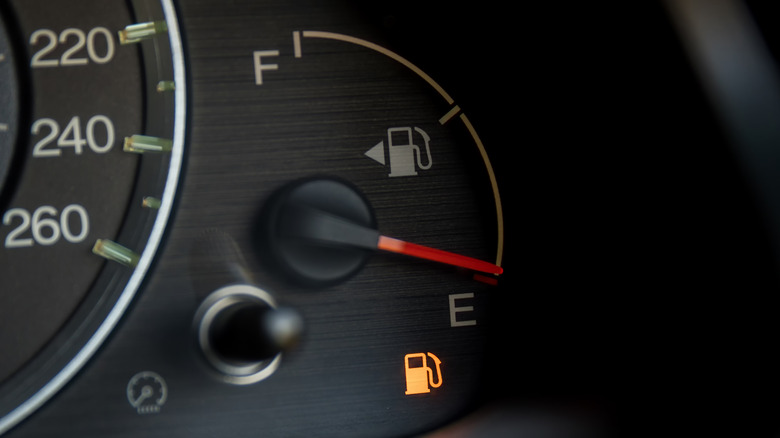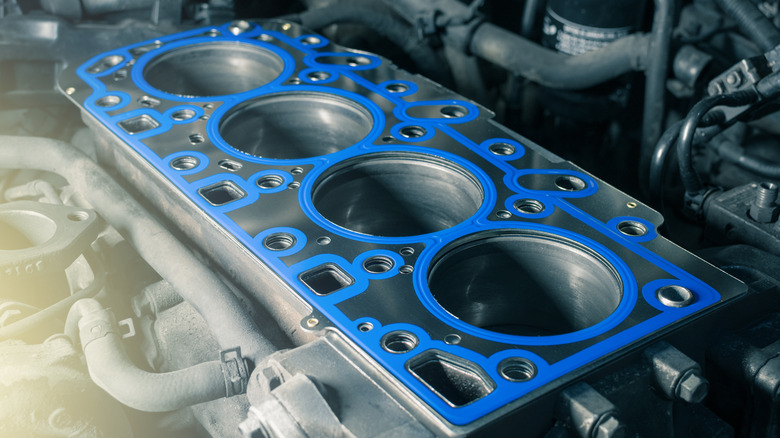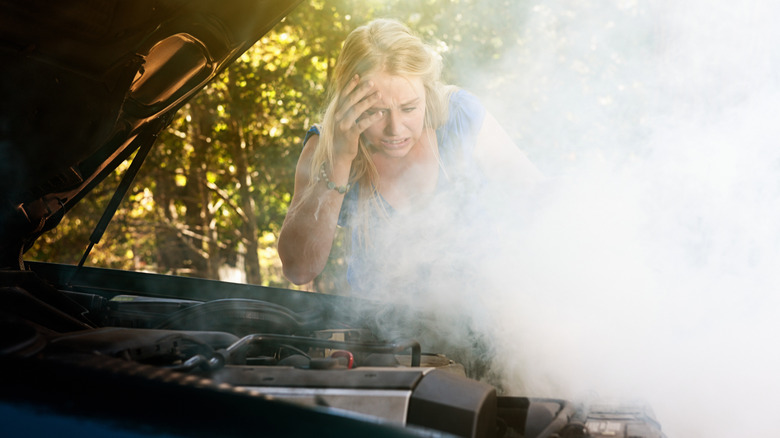What Happens If You Never Change Your Car's Air Filter
While most people know the importance of having your vehicle oil changed, if your car sits for long periods of time or you don't keep up with routine maintenance, you may not realize that the air filter needs to be changed, too. It may not always be on your mind, but your engine's air filter is a vital part of your vehicle's performance. If you know what's good for your wallet and car, you'll mark "time to change air filter" on the calendar in bold.
Automotive air filters have a very specific shelf life and need to be swapped out at least once every year or after your car's odometer reaches 12,000 to 15,000 miles. If you disregard the air filter in your car, leaving the same filter in there for years on end, you could end up on the receiving end of a variety of negative effects, both for your car and you personally.
What does an air filter do?
The engine's air filter is a vital component of your car's safe operation. When your car's engine takes in fuel from the tank, it also takes in external oxygen to create an air-fuel mixture, as oxygen is necessary to fire off the spark plugs in the engine and push the pistons.
Normally, these two elements are balanced out thanks to your fuel intake system and air filter, with the two components working in tandem to get just enough oxygen to trip the spark plug and just enough fuel to create the little explosion that pushes the piston down. However, as the filter pulls in oxygen from outside the car, it's also capturing all of the little particulates and debris that you don't want in your engine. Those debris don't magically go away; they stay right where they are in the air filter, so you can't keep using the same one forever.
Worse gas mileage
If your car's air filter is clogged up and not letting oxygen in from outside of the car, your car's performance may suffer. Besides being generally bad for the engine, this also means a greater draw on your car's fuel storage, which could mean reduced gas mileage and performance. This, in turn, could mean more frequent trips to the gas station and more cash out of your wallet.
To add insult to injury, all of this wasted gas flooding your engine can result in a distinctive gasoline smell permeating your car cabin and spewing out of your tailpipe as black smoke. If that's not an obvious sign that something is seriously wrong with your car, what is?
Poor engine performance
Your car may not be powered by air, but it still needs both air and fuel in equal measures to function properly. If the air filter is gunked up and the ratio of air to fuel in the air-fuel mixture gets thrown out of whack, your engine will start getting inundated with larger amounts of fuel as it attempts to compensate for the lack of oxygen.
Not only does all that extra gas flood the engine and make it harder for the pistons to pump, but the reduced oxygen makes it harder for the spark plug to fire off. This results in an engine that's basically swimming in itself, unable to pump its pistons and provide power to the car. It's a self-perpetuating problem — the system tries harder to pull in oxygen, more contaminants clog up the filter, and the air-fuel ratio gets even more messed up.
Worst case scenario
If your engine's air filter is completely clogged and your engine starts flooding, you only have a little bit of time to get your car some professional automotive assistance. If the airflow stops completely and the fuel keeps flooding in, eventually, the pistons in the engine block won't even be able to move, let alone pump. At this point, you'll have reached total engine failure, necessitating a potentially expensive tow.
If you don't think much about your engine's air filter, you'd do well to start keeping reminders for yourself. Changing the filter regularly, either by yourself or with the aid of a licensed automotive technician, is vital for your car's continued health and longevity, not to mention saving you quite a bit of cash. Most garages will change your filters as part of regular maintenance checkups, so as long as you're bringing your car in for regular tune-ups, you hopefully won't be confronted with poor fuel mileage or worse.
